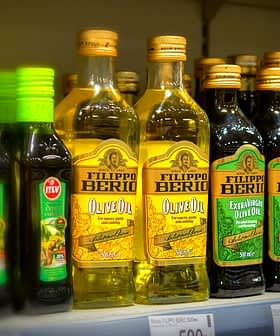Researchers Characterize Two Galician Olive Varieties for the First Time
Research has classified olive varieties from an emerging olive-producing region of Spain. A concurrent study has found the oil from these cultivars can be of value for preventing neurodegenerative diseases.
Spain is the world’s top producer of olive oil, with most of it coming from Andalusia, but other regions like Galicia are now producing high-quality olive oil. Researchers from the University of Córdoba and the University of Vigo have identified and characterized two native olive varieties in Galicia, which have the potential to produce excellent quality extra virgin olive oil and may have therapeutic properties for neurodegenerative conditions.
Olive oil, the main source of fat in the Mediterranean diet, is renowned for its nutrients and health properties. Spain holds the distinction of being the top producer of this “liquid gold” in the world. While most olive oil in the country is produced in Andalusia, in recent years other areas have started to manufacture high-quality olive oil using indigenous varieties.
The knowledge we have about the characteristics of Galician olive oil is scarce and up to now no systematic characterization had been done on this topic.
Galicia, a region in Spain’s northeast, grows two olive varieties called Brava and Mansa. While the climate differs from other parts of Spain in sunlight and rainfall, the native olives grow well here.
Recently, for the first time, researchers examined Galicia’s olive trees to establish their identity and determine their genetic relationship to other olive cultivars in the Iberian Peninsula. The study was a collaboration between the University of Córdoba and the AA1 research team from the Nutrition and Food Science Department at the University of Vigo.
Scientists used an identification procedure based on 14 molecular markers (DNA) and 11 morphological, or structural, markers. The procedure was previously used in the classification process of the Córdoba’s Olive Tree Germplasm Bank, which contains 800 varieties from 23 countries.
Analysis of the data showed 75 percent of Córdoba’s olive trees were of the Brava cultivar and 22 percent were of the Mansa cultivar. The authors concluded the two varieties have a high potential for producing excellent quality extra virgin olive oil.
According to Isabel Trujillo Navas, a participating scientist from the University of Córdoba, “the knowledge we have about the characteristics of Galician olive oil is scarce and up to now no systematic characterization had been done on this topic.”
These results establish a foundation upon which cataloging differences and similarities among olive varieties can continue in the future. The research, which will keep going forward over the next few months, has provided the opportunity for “producing unique new olive oils and diversifying the national and international markets,” said Navas.
Results were published in the journal Scientia Horticulturae.
The study was conducted immediately prior to a February 2018 investigation that evaluated the therapeutic properties of Galicia’s Brava and Mansa extra virgin olive oils. Researchers extracted healthful compounds in the oils called polyphenols and tested their capacity to inhibit enzymes associated with neurodegenerative conditions such as Alzheimer’s disease, Parkinson’s disease and major depressive disorder.
Scientists have postulated that high concentrations of certain enzymes reduce levels of brain neurotransmitters, which are chemicals that protect against neurodegenerative conditions. Therefore, an agent that inhibits these enzymes, such as the polyphenols in olive oil, can result in increased levels of the neurotransmitters needed for optimal brain function.
The findings showed both olive varieties, particularly Brava, could inhibit some of the enzymes involved. Therefore, the oils could be considered candidates for functional foods for these disorders, playing a role in their prevention and remediation.
It’s possible that the daily consumption of extra virgin olive oil is responsible for the lower incidence of neurodegenerative disorders in countries bordering the Mediterranean. The study was published in the journal Molecules.









